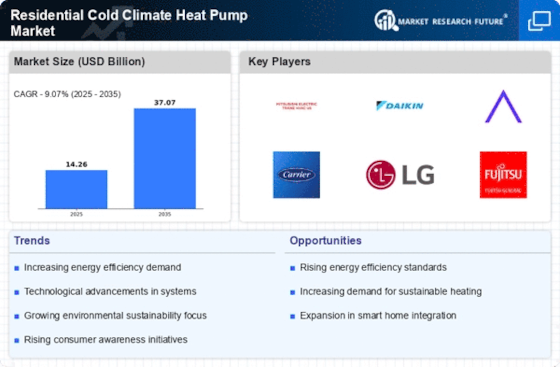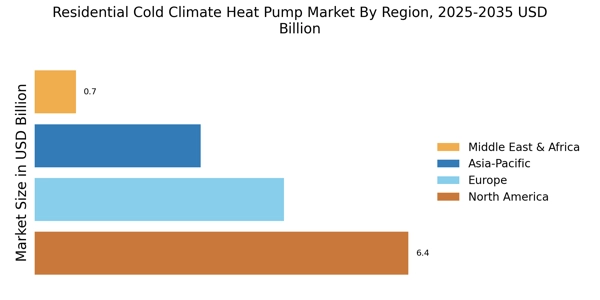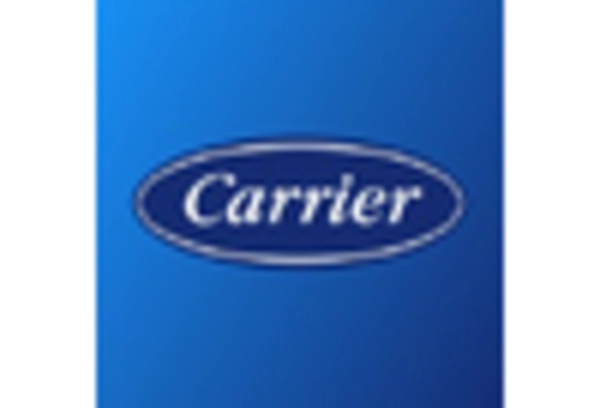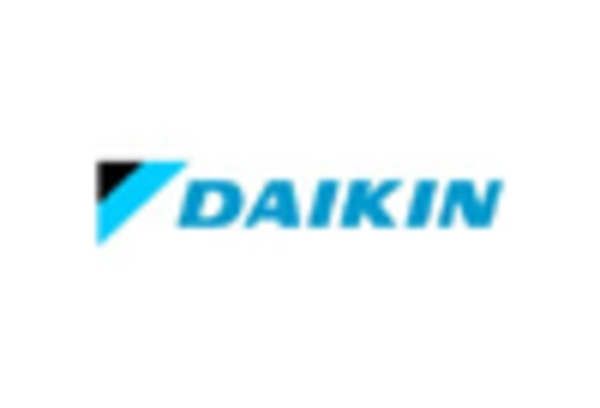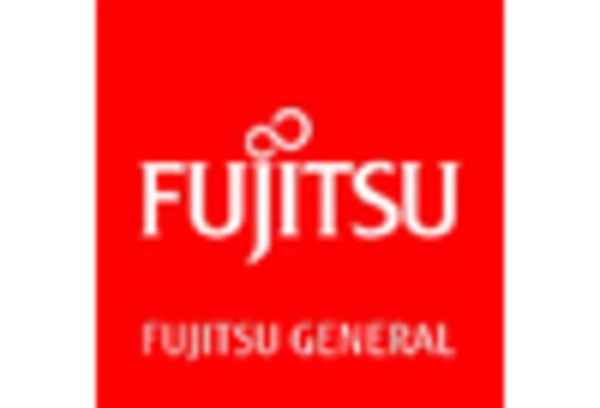Rising Energy Efficiency Standards
The Residential Cold Climate Heat Pump Market is experiencing a notable shift due to the increasing energy efficiency standards mandated by various governments. These standards aim to reduce energy consumption and greenhouse gas emissions, thereby promoting the adoption of energy-efficient technologies. As a result, heat pumps that meet or exceed these standards are becoming more attractive to consumers. In fact, recent data indicates that energy-efficient heat pumps can reduce heating costs by up to 50% compared to traditional heating systems. This trend is likely to drive growth in the Residential Cold Climate Heat Pump Market, as homeowners seek to comply with regulations while also benefiting from lower energy bills.
Increased Focus on Indoor Air Quality
The Residential Cold Climate Heat Pump Market is also benefiting from a heightened focus on indoor air quality. As homeowners become more aware of the health implications associated with poor air quality, there is a growing demand for heating systems that can improve indoor environments. Heat pumps, which often come equipped with advanced filtration systems, can enhance air quality by reducing allergens and pollutants. Market Research Future indicates that homes with heat pumps report better indoor air quality, which is a compelling selling point for consumers. This increased focus on health and wellness is likely to drive further growth in the Residential Cold Climate Heat Pump Market.
Growing Demand for Sustainable Solutions
The Residential Cold Climate Heat Pump Market is witnessing a surge in demand for sustainable heating solutions. As environmental concerns become more pronounced, consumers are increasingly seeking alternatives to fossil fuel-based heating systems. Heat pumps, which utilize renewable energy sources, are positioned as a viable solution. Market data suggests that the adoption of heat pumps can lead to a significant reduction in carbon emissions, making them an appealing choice for eco-conscious consumers. This growing preference for sustainable solutions is expected to propel the Residential Cold Climate Heat Pump Market forward, as more individuals prioritize environmental impact in their purchasing decisions.
Technological Innovations in Heat Pump Design
Technological advancements are playing a crucial role in shaping the Residential Cold Climate Heat Pump Market. Innovations in heat pump design, such as variable-speed compressors and advanced refrigerants, are enhancing the performance and efficiency of these systems. For instance, modern heat pumps can operate effectively in extremely low temperatures, which is essential for cold climates. Data indicates that these innovations can improve heating efficiency by up to 30%, making heat pumps a more attractive option for homeowners. As technology continues to evolve, the Residential Cold Climate Heat Pump Market is likely to benefit from increased adoption rates and improved consumer satisfaction.
Incentives and Rebates for Heat Pump Installation
The Residential Cold Climate Heat Pump Market is being positively influenced by various incentives and rebates offered by governments and utility companies. These financial incentives are designed to encourage homeowners to invest in energy-efficient heating solutions, including heat pumps. Recent statistics reveal that regions with robust incentive programs have seen a 40% increase in heat pump installations. This trend not only makes heat pumps more financially accessible but also raises awareness about their benefits. As more consumers take advantage of these incentives, the Residential Cold Climate Heat Pump Market is expected to expand significantly in the coming years.


